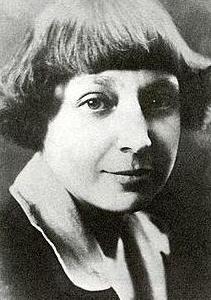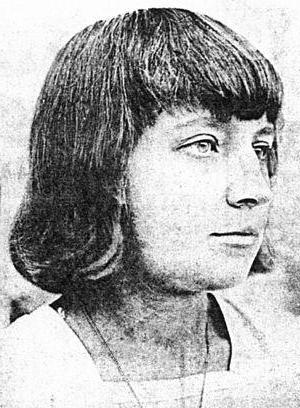
An analysis of the poem by Tsvetaeva "You go to mesimilar "is of great importance in studying the work of this poetess, which has left a bright mark in the domestic literature. In her works, the themes of mysticism and philosophy take a special place. The author possessed an acute perception of life and death, and this topic was reflected in her most famous works. Marina Ivanovna often reflected on her death or about the loss of people close and familiar to her, so the idea of her own death received in her works a very dramatic and at the same time bright sound.
An analysis of the poem by Tsvetaeva "You go to mesimilar "should start with a mention of the date it was written. It was created in the early period of her work, when romantic moods prevailed in her worldview. This affected the content of the verse in question. At first, the poetess appeals to all those who will live after her death. The collective image of all these people is an unknown passerby who accidentally walks past her grave.

Marina Ivanovna immediately underlines the similarities betweenand this stranger, paying attention to the fact that she once lived a serene life, not thinking about anything. She points out that she, once thoughtfully, dropped her eyes and calls on this unknown person to stop at the grave and think about it.
An analysis of the poem by Tsvetaeva "You go to mesimilar "proves a specific perception of the poet's end of his life path. From the following text, the reader will learn that the dark perception of death was alien to her. On the contrary, she emphasizes that flowers should grow on her grave - night blindness, stalks of wild grass and strawberries.

Such a picture of the cemetery immediately brings sad,but bright thoughts of death. The poet purposely creates such an image of the cemetery, wishing to emphasize that in death there is nothing terrible, gloomy or frightening. On the contrary, she is very optimistic and calls on the unknown passer-by to treat everything she saw freely and easily - the way she treated life and her destiny in her time.
An analysis of the poem by Tsvetaeva "You go to mesimilar "focuses attention on the poet's dialogue with a stranger. However, it would be more accurate to say that the verse itself is a detailed monologue of the poetess about the life of death. On the behavior and reactions of the unknown, the reader learns from the short replies of the poetess, who calls not to be frightened of the grave, death, but, on the contrary, to think about it easily and without sadness. The heroine of the verse immediately takes a friendly tone, wishing to place the passer-by to himself.

Judging by the further continuation of the conversation, she issucceeds. The stranger stops and reflects on the grave. First of all Marina Ivanovna calls him to pick some flowers, eat strawberries and read the inscription about the life of the one who lies in the grave near which he stopped.
In the poem Tsvetaeva "You go to melike "an important place is the story of the deceased's life. The author of just a few phrases draws her fate. According to the author, the deceased woman was cheerful, possessed a carefree character, loved to laugh. These traits remind of Marina Ivanovna herself. She emphasizes that the deceased woman was a rebel by nature, since she loved to laugh where it was impossible. Therefore, the author also encourages the passer-by not to be sad about the grave, as is customary, but to smile and just think about the deceased something good.
The main theme of the poem "Come on melike "Tsvetaeva is the reasoning about life and death. An important role in the disclosure of this idea is played by the disclosure of the image of a deceased woman, with whom the poet associates herself. Her appearance remains undiscovered, the reader only learns some details, which nevertheless allow him to better understand it. Marina Ivanovna mentions only the curls that nuzzled her face, as if emphasizing her obstinate and stubborn disposition. In addition, the description of the smile is of particular importance in the work, which gives an easy and unconstrained tone to the entire verse.

The idea of Tsvetaeva's poem "You go to mesimilar "is revealed closer to the finale. It is in the last quatrain that the author shows his attitude to the memory of descendants. The final part of the verse shows that she does not count on recognition, fame or honor. She only wants to be remembered sometimes as a woman who lived her life easily and freely. She obviously does not want her name to be respected, she likes that at her grave some unknown person will give her a kind word. That is why the image of an unfamiliar passer-by is described in very light colors. The author emphasizes that he is flooded with sunlight, despite the fact that he stopped at the grave. So, the poem in question is one of the most famous works of the poetess, in which the theme of mysticism became decisive.
</ p>